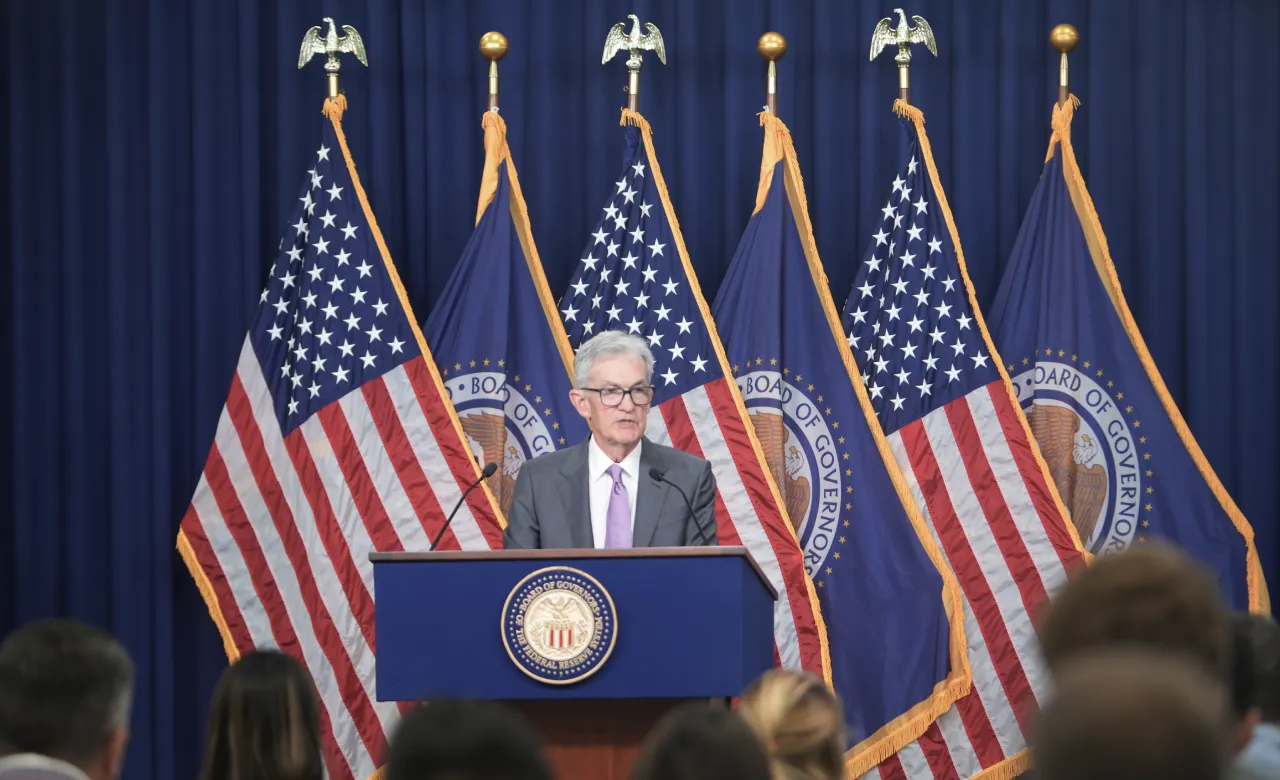What is Trade Restriction?
Trade restrictions refer to any government-imposed policy that limits or controls the import or export of goods and services. These policies are put in place for various reasons, including protecting domestic industries, ensuring national security, and promoting economic stability.
There are several types of trade restrictions, including tariffs, quotas, embargoes, sanctions, regulations, and local content requirements.
Numerous factors could prompt countries to implement trade restrictions, which may include:
- Protecting domestic industries from foreign competition by making it more difficult or expensive for foreign products to enter the market.
- Promoting national security by controlling the export of sensitive technologies, weapons, or other goods that may pose a risk to national security.
- Addressing environmental concerns by regulating the import and export of goods that may harm the environment.
- Promoting fair trade by addressing unfair competition.
Trade restrictions can have both positive and negative effects. While they may protect domestic industries and promote local production, they can also raise prices for consumers and reduce competition, leading to reduced innovation and economic growth.
Tariffs
Tariffs are taxes that are imposed on imported goods and services, making them more expensive than domestically produced goods. This makes foreign products less attractive to consumers, protecting domestic industries and promoting local production.
While tariffs can help protect domestic industries and generate revenue for governments, they can also increase the prices of goods for consumers, limit consumer choice, and lead to retaliatory tariffs from other countries, which can harm international trade relations.
Quotas
Quotas are limits placed on the amount of a particular product that can be imported or exported. This is often done to protect domestic industries from being overwhelmed by foreign competition. It can be global or country-specific. Global quotas limit the total quantity of a product that can be imported from all countries, while country-specific quotas limit the quantity of a product that can be imported from a specific country.
Quotas can be administered through a variety of mechanisms, such as auctioning or licensing, but they generally limit the availability of imported goods in the domestic market, which can lead to higher prices for consumers.
While quotas can help protect domestic industries from foreign competition, they can also limit consumer choice, reduce competition, and lead to higher prices for consumers. They can also lead to a black market for goods that exceed the quota limit and can be difficult to enforce.
Embargoes
Embargoes are a complete ban on trade with a particular country or region. This may be imposed for political or security reasons, such as in cases where a country is deemed to be a threat to national security.
Embargoes can be imposed unilaterally by a single country or collectively by a group of countries, such as the United Nations. They can be comprehensive, covering all types of trade, or targeted, covering specific goods or industries.
Embargoes can have significant economic impacts on both the target country and the countries that impose them. They can limit access to essential goods and services, disrupt supply chains, and cause economic hardship for businesses and consumers.
However, they can harm innocent civilians and businesses, create regional economic instability, and undermine the principles of free trade. Additionally, they may not always achieve their intended policy objectives and may lead to countermeasures or retaliation from the target country.
Sanctions
Sanctions refer to a policy of restricting trade or economic activity with a particular country, group, or individual, typically as a means of exerting political or economic pressure.
Sanctions can take many forms, including trade embargoes, restrictions on financial transactions, travel bans, and asset freezes. It is often used by countries or international organizations as a tool to influence the behavior of another country or group. For example, sanctions may be imposed on a country for violating international law or supporting terrorist activities.
However, the effectiveness of sanctions as a tool for achieving political or policy goals is the subject of ongoing debate, with some arguing that sanctions can be counterproductive or lead to unintended consequences.
Regulations
Regulations are standards or requirements that must be met by imported goods before they can be sold in a particular country. Regulations are often used to protect public health, safety, or the environment, and can cover a wide range of issues such as product safety, environmental protection, and consumer protection.
Regulations can affect international trade by creating technical barriers to trade, which can make it more difficult and expensive for foreign producers to sell their products in a particular market. Technical barriers to trade can take various forms, such as product testing and certification requirements, labeling requirements, and product standards.
Local Content Requirements
Local Content Requirements (LCRs) are regulations that require a certain proportion of the value of goods or services sold in a particular country to be produced or provided locally.
For example, a local content requirement may require that a certain percentage of the components used to manufacture a product be sourced locally or that a certain percentage of the workforce be local.
LCRs are often used by governments to promote local economic development, create jobs, and stimulate domestic industries. However, LCRs can also restrict international trade by favoring local producers over foreign producers and limiting their market access.
Subsidies
Subsidies are financial assistance provided by governments to domestic producers in order to lower their costs and make them more competitive with foreign producers. Subsidies can take various forms, such as direct payments, tax credits, loan guarantees, or preferential access to government services.
Subsidies are often used to support industries that are considered important for national security, job creation, or economic development. For example, subsidies may be used to support the agricultural sector, which is considered important for food security and rural development, or the aerospace industry, which is considered important for national defense.
However, subsidies can also distort international trade by creating an uneven playing field between domestic and foreign producers. By lowering the costs of domestic production, subsidies can make domestic goods more competitive with foreign goods, even if they are of lower quality or higher cost. This can lead to unfair trade practices and harm foreign producers who cannot compete with subsidized goods.
In some cases, subsidies can also lead to overproduction, which can create excess supply and depress prices in the global market. This can harm both domestic and foreign producers and lead to trade tensions between countries.
Local Content Requirements
Local Content Requirements (LCRs) are regulations that require a certain proportion of the value of goods or services sold in a particular country to be produced or provided locally. For example, a local content requirement may require that a certain percentage of the components used to manufacture a product be sourced locally or that a certain percentage of the workforce be local.
LCRs are often used by governments to promote local economic development, create jobs, and stimulate domestic industries. However, LCRs can also restrict international trade by favoring local producers over foreign producers and limiting their market access.
LCRs can create significant challenges for foreign producers, as they may not have the necessary capabilities or resources to comply with the local content requirements. Additionally, LCRs can increase production costs, reduce efficiency, and limit innovation by requiring local production of certain components or services.
Voluntary Export Restraints (VERs)
Voluntary Export Restraints (VERs) are agreements between exporting and importing countries that limit the quantity of goods that can be exported to a particular country. VERs are usually negotiated by the importing country with the exporting country to address concerns about the impact of imports on domestic industries, such as in the case of steel or textiles.
Under a VER, the exporting country agrees to voluntarily limit the quantity of its exports to the importing country, often for a specified period of time. VERs are typically used as a temporary measure to alleviate pressure on domestic industries and provide time for them to adjust to foreign competition.
VERs can have negative impacts on international trade by limiting access to foreign goods and distorting market competition. VERs can also lead to higher prices for consumers, as the limited supply of imported goods can result in increased demand and prices.
Why does the Country Need Trade Restrictions?
Numerous factors could prompt countries to implement trade restrictions, which may include:
- Protecting domestic industries: Trade restrictions can be used to protect domestic industries from foreign competition by making it more difficult or expensive for foreign products to enter the market. This can help prevent the loss of jobs and maintain the competitiveness of domestic industries.
- Promoting national security: Trade restrictions can be used to protect national security by controlling the export of sensitive technologies, weapons, or other goods that may pose a risk to national security.
- Addressing environmental concerns: Trade restrictions can be used to address environmental concerns by regulating the import and export of goods that may harm the environment, such as products containing hazardous chemicals.
- Promoting fair trade: Trade restrictions can be used to promote fair trade practices by addressing unfair competition, such as dumping or the sale of goods below cost.



